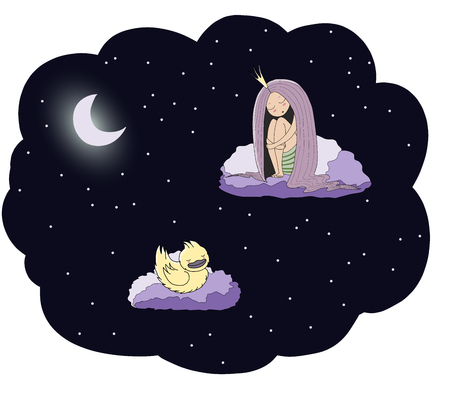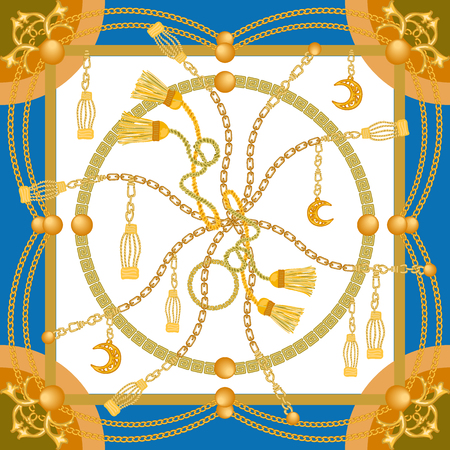Introduction to Shakespeare and Astrology
To truly understand the enduring magic of William Shakespeare’s works, one must step into the world of Elizabethan England—a time when the stars above were believed to hold sway over human destinies. During the late 16th and early 17th centuries, astrology was not merely a matter of superstition or idle curiosity; it was regarded as a legitimate science, woven seamlessly into daily life and decision-making. The cultural climate of England in Shakespeare’s day brimmed with celestial fascination. From the monarchs at court to commoners in bustling markets, people eagerly consulted astrologers for guidance on everything from love and fortune to political affairs.
This profound belief in cosmic influence was reflected in art, literature, and especially in the theatre. The Elizabethan mind saw the universe as an intricate tapestry where planetary movements could portend joy or disaster. For Shakespeare, ever attuned to the currents of his society, these themes offered rich material—providing both poetic language and dramatic tension. Astrology’s presence in his plays is not accidental; it echoes the collective heartbeat of his era. By exploring astrological motifs, Shakespeare tapped into universal hopes and anxieties about fate, free will, and the mysterious order governing our lives. Thus, delving into astrological references within Shakespeare’s works is not just an academic exercise—it is a journey into the soul of a culture that found meaning among the stars.
Zodiac Symbolism in Shakespeare’s Language
When we wander through the tapestry of Shakespeare’s verse, it is impossible to ignore the glimmering threads of astrological imagery woven throughout. The Bard was not only a master dramatist but also a keen observer of the heavens, drawing upon zodiac symbols and celestial references to enrich his poetry and plays. His use of astrology reflects both Elizabethan England’s fascination with the stars and his own understanding of their metaphorical power.
Shakespeare often employed the language of the zodiac as a means to express fate, temperament, and destiny—concepts that would have been intimately familiar to his audience. For example, in King Lear, Edmund famously scoffs at “the excellent foppery of the world, that, when we are sick in fortune…we make guilty of our disasters the sun, the moon, and stars.” Here, Shakespeare alludes directly to astrological fatalism, a belief widely held in Britain during his time.
His references are peppered with distinctly British terms and sensibilities. In A Midsummer Night’s Dream, Bottom wonders if he shall play “Thisby by moonlight,” subtly nodding to lunar influence—a motif closely associated with madness and changeability in English folklore. The “Dog Star,” or Sirius, makes an appearance in Henry IV, linking extreme weather to celestial phenomena, as was common parlance among English yeomen and scholars alike.
The table below highlights some prominent zodiacal references in Shakespeare’s works alongside their likely British cultural meanings:
| Zodiac/Star Reference | Play/Poem | British Allusion or Term | Symbolic Meaning |
|---|---|---|---|
| Leo (“The Lion”) | A Midsummer Night’s Dream | “Roaring” as a show of bravado—linked to English heraldry | Courage, pride, theatricality |
| Cancer (“The Crab”) | Twelfth Night | “Crabbed age and youth”—old age described using the crab, common in British idiom | Reluctance, backward movement, time’s passage |
| Sirius (“The Dog Star”) | Henry IV, Part 1 | “Dog days”—a phrase rooted in British weather lore | Heat, restlessness, feverishness |
| Pleiades (“Seven Stars”) | Henry VI, Part 1 | The “Seven Sisters” constellation—referenced in navigation and farming almanacs | Mystery, guidance, fate |
| Mars (Planet) | Romeo and Juliet | The “bloody planet”—popular term among Tudor astrologers and soldiers alike | War, passion, violence |
Shakespeare’s astrological references thus served not merely as poetic embellishments but as resonant cultural touchstones for his English audiences. By infusing his lines with zodiacal imagery and starry metaphors—often couched in local idioms—he illuminated character motivations and cosmic irony alike. These allusions continue to enchant modern readers, offering a starlit lens through which to view human nature’s timeless drama.

3. Character Archetypes and Astrological Traits
When delving into Shakespeare’s timeless works, it is striking how his characters often mirror the quintessential qualities of the zodiac signs—intentionally or otherwise. The Bard seemed to possess an innate understanding of human nature, weaving astrological motifs into his character creation in a manner that still resonates with those familiar with British astrological discourse.
Consider Hamlet, whose introspective and contemplative nature aligns closely with the water sign Pisces. Like many Pisceans, Hamlet is deeply sensitive, intuitive, and sometimes lost in the labyrinth of his own thoughts. His empathy and spiritual questioning reflect the Piscean archetype—a dreamer torn between worlds.
On the other hand, Lady Macbeth exemplifies classic Scorpio traits: fiercely ambitious, cunning, and unafraid to delve into moral shadows to achieve her aims. Her emotional intensity and transformative arc from power-hungry instigator to haunted soul echo the transformative journey so often associated with Scorpios in British star sign columns.
In a lighter vein, Mercutio in Romeo and Juliet sparkles with the mercurial wit and quicksilver humour characteristic of Gemini. His playful banter, sharp intellect, and restlessness capture the essence of this air sign—traits often highlighted in British horoscopes as both entertaining and unpredictable.
The Royal Leo: King Lear
No discussion would be complete without mentioning King Lear, who displays all the pride, generosity, and theatrical grandeur typically associated with Leo. The British tradition of interpreting Leos as natural leaders who crave recognition finds a perfect embodiment in Lear’s dramatic journey from regal authority to humbled wisdom.
A Continuing Tradition
Through these archetypes, Shakespeare’s works offer a fascinating lens for readers attuned to astrological symbolism—especially in Britain, where star sign readings remain a beloved part of daily culture. Whether by design or intuition, the Bard’s characters invite us to see ourselves—and our stars—reflected on the stage.
4. Fate, Fortune, and the Planets
Shakespeare’s fascination with fate and fortune is woven delicately through his works, echoing the astrological beliefs that permeated Elizabethan England. The interplay between destiny and free will is a thread that binds many of his characters’ journeys, often expressed through references to planets and stars. In British culture, the phrase “star-crossed” has become synonymous with tragic inevitability—a nod to the belief that our lives are written in the cosmos above.
The Power of the Planets
Throughout Shakespeare’s plays, planetary influences are invoked to explain both good fortune and dire misfortune. Characters frequently attribute their circumstances to the whims of Jupiter, Mars, or Saturn—planets associated with luck, conflict, or melancholy. This celestial vocabulary mirrors the widespread Renaissance view that planets governed human temperament and fate.
| Play | Reference | Astrological Significance |
|---|---|---|
| Romeo and Juliet | “A pair of star-cross’d lovers take their life.” | Fate predetermined by adverse planetary alignment |
| King Lear | “It is the stars, The stars above us, govern our conditions.” | Inevitability of destiny shaped by celestial bodies |
| Cymbeline | “Men’s evil manners live in brass; their virtues we write in water.” | The fleeting nature of fortune and reputation under changing stars |
| Julius Caesar | “The fault, dear Brutus, is not in our stars, But in ourselves…” | Tension between fate (stars) and personal responsibility (free will) |
The British Notion of ‘One’s Star-Crossed Lot’
This belief in a ‘star-crossed lot’—a uniquely British expression—encapsulates a national sense of stoic resignation mingled with hope. Shakespeare gently interrogates whether we are truly at the mercy of planetary powers or if there is space for agency within our allotted fate. His characters often wrestle with this dilemma: should they surrender to destiny as mapped by the heavens or strive to alter their course? This nuanced exploration reflects a distinctly British acceptance of life’s uncertainties while clinging to the possibility of shaping one’s own story.
A Gentle Dance Between Destiny and Choice
Ultimately, Shakespeare’s astrological references invite us to ponder the cosmic choreography behind every twist of fortune. Are we but players on a stage set by Jupiter and Saturn? Or do we have some say in rewriting the script? In true Shakespearean fashion, he offers no easy answers—only an enduring invitation to look up at the night sky and wonder where fate ends and free will begins.
5. Astrology as Social Commentary
Shakespeare’s astrological allusions were far from decorative; they were powerful tools for social commentary in the context of Tudor England. The Elizabethan era, with its rigid class structures and intricate court politics, provided a fertile ground for Shakespeare to weave cosmic metaphors into his exploration of power, fate, and authority. Through references to planetary influences and star-crossed destinies, he subtly critiqued the social hierarchies that defined his world. For instance, when characters like King Lear or Macbeth blame “the stars” for their misfortunes, Shakespeare invites audiences to consider whether destiny is truly written in the heavens—or shaped by earthly ambition and human folly.
The Bard’s use of astrology often mirrors the anxieties and aspirations of Tudor society, where one’s place in the social order was believed to be as fixed as the stars themselves. By attributing noble success or tragic downfall to celestial influence, Shakespeare both reinforced and questioned the legitimacy of these hierarchies. This duality allowed him to bridge the gap between cosmic forces and tangible societal realities, encouraging his English audience to reflect on the ways in which power, privilege, and fate intertwined within their own lives. In doing so, Shakespeare gently illuminated the tensions at play in his society—reminding us that even under English skies, our destinies are written with a quill dipped in both starlight and ink.
6. Legacy of Shakespeare’s Astrological Imagery in British Culture
When we trace the shimmering thread of astrological references through Shakespeare’s works, it becomes clear that their influence extends well beyond the Elizabethan stage. In modern British language, Shakespeare’s celestial metaphors and planetary allusions have quietly woven themselves into everyday speech. Phrases like “star-crossed lovers” or “the fault…in our stars” are uttered with casual familiarity, their origins rooted deeply in his poetic musings on fate and fortune. These expressions still shimmer with the same sense of cosmic wonder and inevitability that captivated audiences centuries ago.
The British theatre, too, continues to draw upon this rich astrological tapestry. Contemporary productions often nod to Shakespeare’s fascination with the heavens—whether through symbolic lighting, set design echoing the zodiac, or directorial choices that highlight fate’s invisible hand guiding characters’ destinies. This enduring motif invites both actors and audiences to reflect on the delicate dance between human will and celestial influence, keeping alive a tradition of looking skyward for meaning.
Perhaps most enchantingly, Shakespeare’s starry wisdom has seeped into the popular imagination of Britain. From horoscopes printed in daily papers to witty pub banter about Mercury in retrograde, there is a distinctly British way of blending scepticism with playful belief—a gentle acknowledgement that life’s twists may sometimes be written in the stars. The bard’s ability to imbue ordinary lives with cosmic significance offers comfort and connection; his words remind us that we are all subject to grander patterns beyond our control.
In today’s Britain, where ancient myth and modern reality mingle effortlessly, Shakespeare’s astrological imagery acts as both a mirror and a guide. It reflects back our hopes and anxieties while inviting us to ponder life’s mysteries with humour and humility. As long as the stars hang above the British Isles—and conversations in its theatres, classrooms, and homes—Shakespeare’s celestial legacy will continue to inspire curiosity and wonder beneath every cloudy London sky.


